Changing Life Projects: African Identities, Moralities and Wellbeing (AIMWell)
Research Section: Moralities
Project duration: 1 Sep 2020 – 31 Aug 2021
Find an overview of the project (PDF) here.
Summary
In Africa, rites of passage remain dominant as social spaces and processes where gender, ethnicity, age, religion, social class and other variables intersect to constitute not just identities but also moral personhood. We propose to explore and analyse identities, moralities and moralities making in contemporary East Africa towards understanding how these are (re)defined, communicated, contested, (re)negotiated, re(invented) and practiced through rites of passage, such as initiation rites and marriages in relation to wellbeing. With dramatic changes resulting from mobilities of things, ideas, and people in social realities in the context of structural changes such as modernization, urbanization, internationalization), and globalization, emphasis on human agency has emerged as individuals seek to (re)define their individual identities and moralities. Our long-term objective is to better understand differences and similarities in the relational processes of making, shaping and changing of identities and moralities across different communities but also in relation to gender and intersectionality in urban and non-urban contexts across East Africa.
Key questions
- What are the dominant notions of identities and moralities in western Kenya as constituted in two rites of passage, initiation from childhood to adulthood and marriage, both of which are understood and presented as socially accepted repertoires of morality and paths to good life? How are these notions transmitted, contested, redefined and negotiated?
- What are the gendered notions of ‘good life’ and wellbeing in both rites of passage, how are these enacted, contested, and negotiated?
- How do individual persons contest, (re)negotiate and (re)define identities and moralities to achieve good life and wellbeing in both rites of passage and are these contestations, negotiations and redefinitions gendered?
- What gendered moralities are at stake in the contestations and negotiations of moralities in these rites of passage and how are they at stake?
Methods and concepts
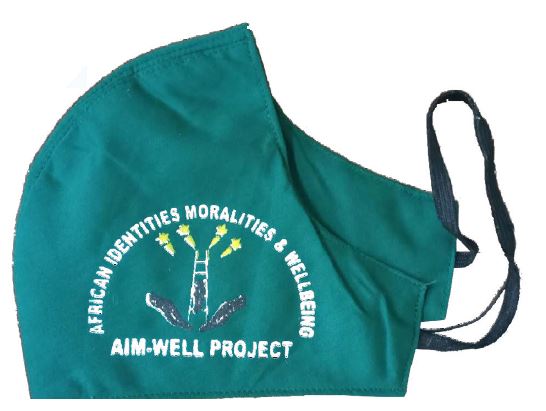
During data collection, the research team had to follow all government protocols on prevention of Covid 19, one of which was wearing a mask. Protection masks were made for all involved in research and for every participant.
This is a cross-sectional exploratory and descriptive study on identities, moralities, and wellbeing through analysis of initiation rites (initiation from childhood to adulthood, and marriage) among the Abagusii, the Bukusu, and the Luo of western Kenya. The three communities provide all typologies of the two rites of passage. The target population comprise male and female persons aged 30 or older; either married or not. Stratified opportunistic and theoretical sampling (guided by CDL theory) were applied to access a sample population of 120 participants.
We assume that identities, moralities, and wellbeing and the meanings attached to them are not given but (re)constructed at community and individual levels. Multiple ethnographic methods including focus group discussions, participant observation, and in-depth one-on-one oral interviewing were used to access thick and in-depth descriptions and explanations of multiple identities, moralities, and moralities-making. Data is being transcribed, translated, coded, and thematically and linguistically analysed using both emic coding following by etic coding. We continue to experience study limitations related to complexity of the subject matter and huge variety of contexts. Using a sequential mixed method design has been helpful in countering this limitation. Ethics review/approval and research permit were granted.
First results and vision
Preliminary data analysis suggest that rites of passage are sites for moral projects in which the formation of ‘good‘ men and women is undertaken. However, unlike commonly assumed, these sites are not cultural reservoirs nor are they mediating factors. They are ‚in between for (re)negotiating, (re)inventing and contesting individual authority and autonomy and freedom in pursuit of self-accomplishment; good life. Therefore, they are incubators of change, zones of relational exchanges and (re)construction of identities. Various knowledge gaps have emerged pointing to the need for broader and longer term studies around agent-centred conceptualizations of the reality of multiple and complex power dynamics in (re)constructions and (re)negotiations of identities, moralities and wellbeing in contemporary East Africa. In the long term, these studies will lead to better understanding of differences and similarities in the relational processes of making, shaping and changing of identities and moralities across different communities for improved wellbeing of African peoples.
Contribution or relation to the Cluster aims & goals
Ultimately, we will not only contribute to the study of relationality but also provide knowledge to contribute to and influence public debates on moralities and moralities-making in relation to wellbeing in East Africa. Additionally, the preliminary study is engaging key stakeholders including local communities, policy actors, and NGO/CBO actors to provide their perspectives to reconfigure African studies , and much more importantly, towards their full engagement in the consequent full study for purposes of transfer and use of research in policy making and for community research uptake. This is necessary for translation of eventual research findings into practical development.
Project Team
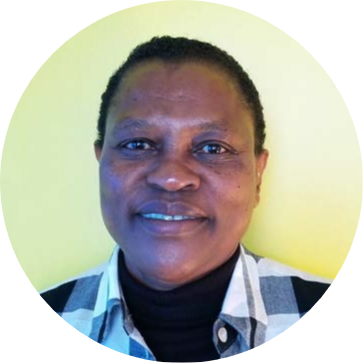
Professor of Religion (Principal Investigator)
E-Mail: kamaara.eunice@mu.ac.ke
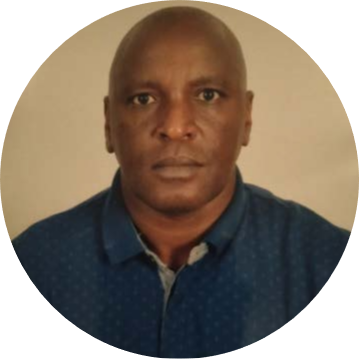
Dr. Eric Masese
Senior lecturer of Sociology (Co-Principal Investigator)
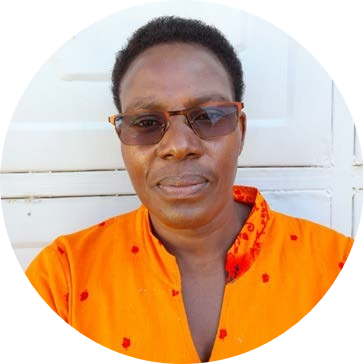
Dr. Mary Lonyangapuo
Senior Lecturer of Linguistics (Expert in language and discourse analysis)
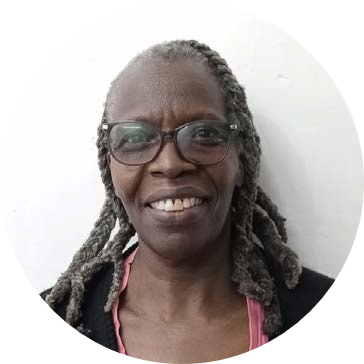
Dr. Emily Choge-Kerama
Ass. Professor of Religion (Expert in Moral Theology/Disability)
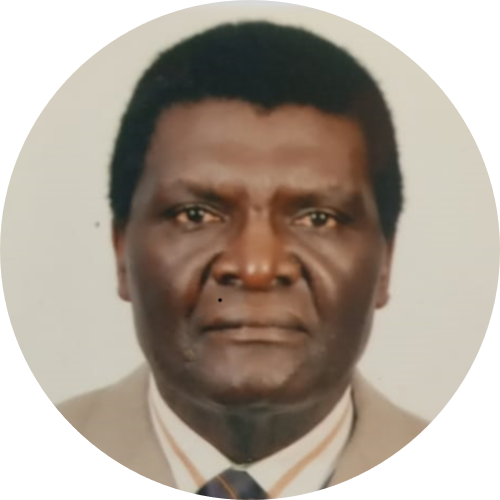
Dr. Paul Nyongesa
Senior Lecturer of Reproductive Health (Expert in wellbeing)
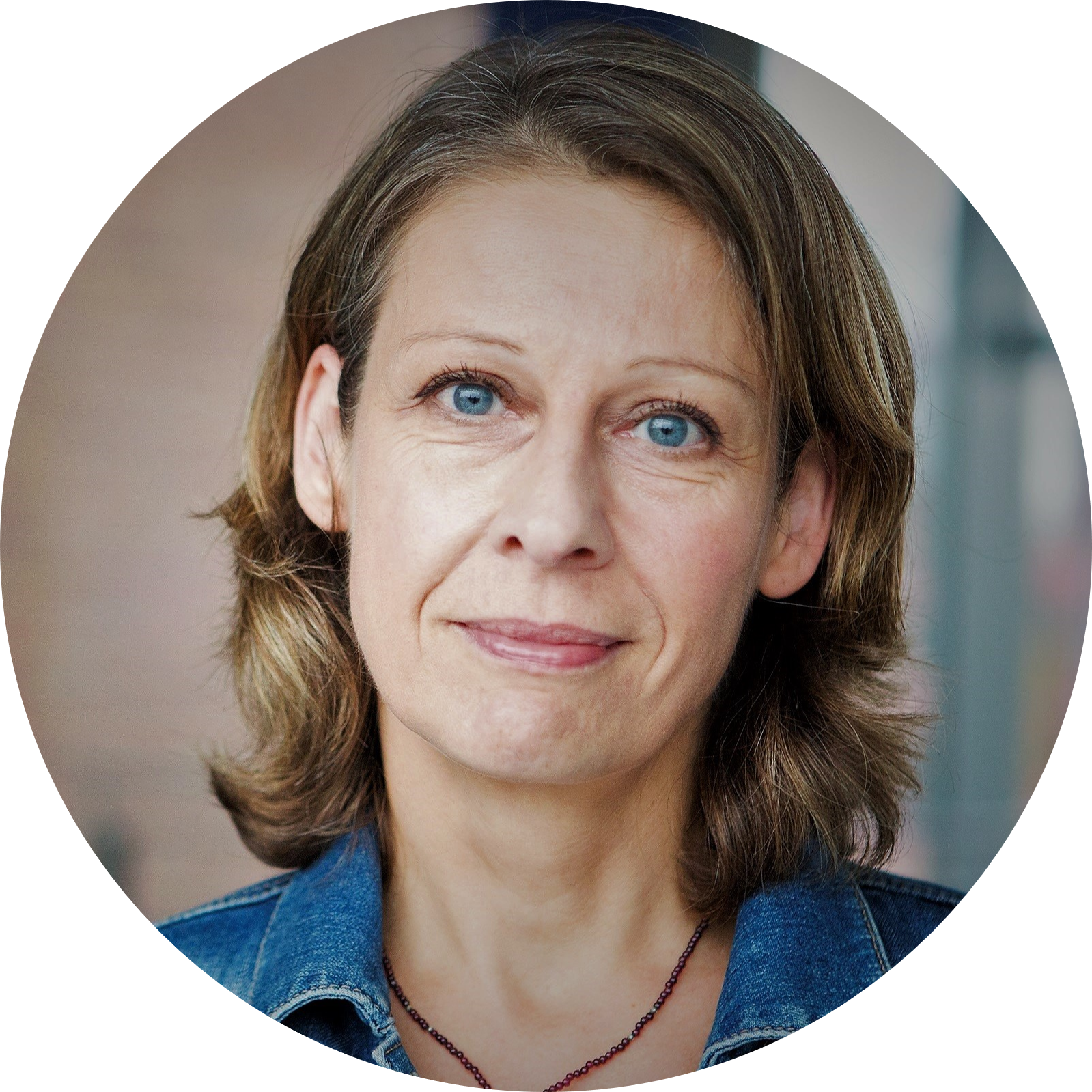
Prof for the Study of Religion Spokesperson of RS Moralities UBT,
Germany. Supporting the project as Advisor
E-Mail: Eva.Spies@uni-bayreuth.de
Additional team members:
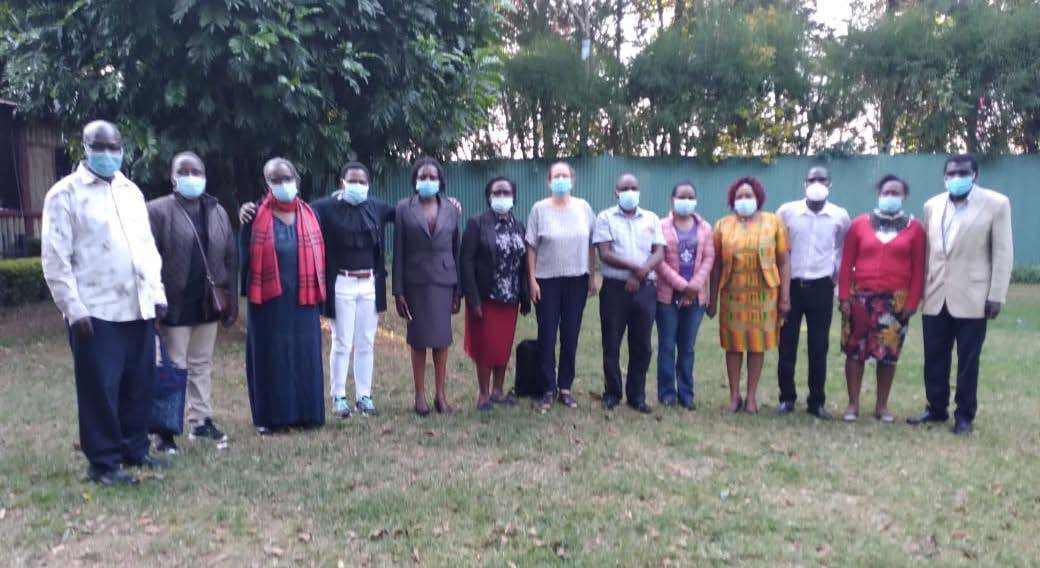
Additional members of the research team. From left to right: Maurice Kong’ong’o, Dr. Evelyne Kisembe, Prof. Emily Choge, Prof. Eunice Kamaara, Dr. Lenah Sambu, Prof. Hazel Ayanga, Dr. Claire Medard, Dr. Eric Masese, Dr. Jepchirchir Kiplagat, Prof. Mary Wahome, Lawrence Ojala, Ms, Abigael Kutwa, Dr. Paul Nyongesa. Not in the picture: Prof. Omar Egesah, Dr. Peter Oino, Prof. Benard Sorre, and Dr. Willice Abuya.
- Prof. Omar Egesah (decd. 2021)
Until his passing, Prof. Egesah was the Spokesperson of RS Mobilities at ACC Moi. He supported the project with Quality Management. - Prof. Mary Wahome
Dean, School of Arts and Social Sciences, Member, Department of Philosophy, Religion, and Theology, Moi University. She continues to support the project with Quality Management. - Prof. Peter Simatei
Director ACC Moi University. He has supported the project as Advisor and in Quality Management - Prof. Yacouba Banhoro
Director, ACC Université Joseph Ki-Zerbo, Ouagadougou, Burkina Faso. Supporting the project as Advisor. - Prof. Dr. Martina Drescher
Chair Romance Linguistics, RS Moralities, University of Bayreuth, Germany. Supporting the project as Advisor.
Further links / key references
Kamaara, Eunice & Naomi L. Shitemi, 2013. “Towards Kenyan Identity and Ethos: Harmony in Differentiated Otherization”, in Recontextualizing Self and Other Issues in Africa: The Practice of a Conference, eds. V-Y Mudimbe. Nairobi: Africa World Press.
Masese R E and Masita E., 2018. The Everyday Life Uncertainties of HIV/AIDS Diseased Bodies in the Era of HIV/AIDS Treatment in Kenya. Sociology and Anthropology 6(12): 868-875
Shield A 2008. Gender: An intersectionality perspective. Sex Roles (2008) 59:301–311 DOI 10.1007/s11199-008-9501-8
Steyn, Melissa 2015. ‘Critical Diversity Literacy: Essentials for the Twenty-First Century. In Routledge International Handbook of Diversity Studies. Ed. Steven Vertovec. London: Routledge. 2015. 379-389.

